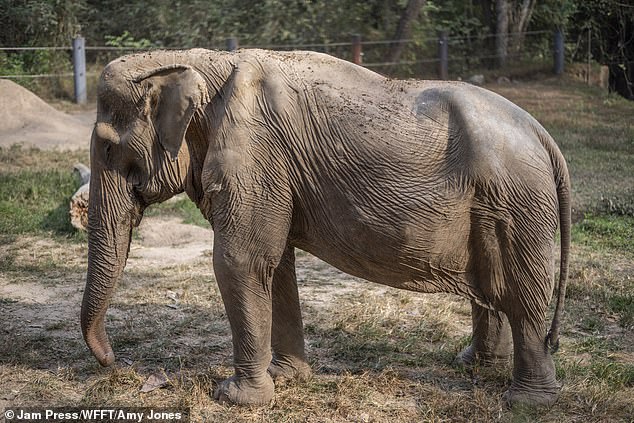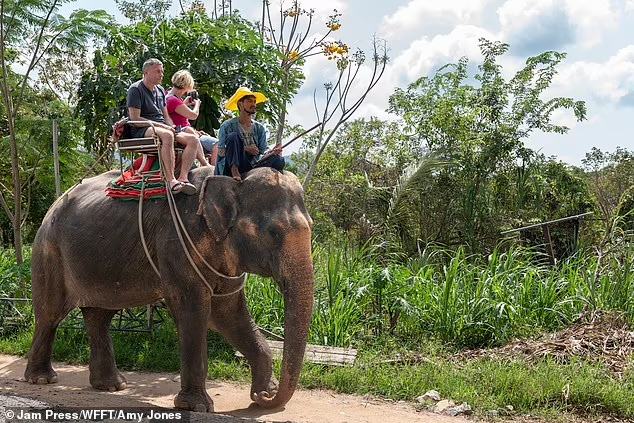In Thailand’s lush forests, an elephant named Pai Lin spent 25 long years carrying tourists on her back. Day after day, she hauled groups of people — sometimes six at a time — across trekking trails under the tropical sun.
Now 71 years old, Pai Lin’s back tells the story of that life — her spine, once rounded and strong, now caves inward, permanently deformed from decades of strain.
The Hidden Cost of Elephant Rides
Riding elephants remains one of the most popular tourist attractions in Southeast Asia. It’s easy to see why — the animals are majestic, gentle, and seem powerful enough to carry anyone.
But what most travelers don’t realize is that elephants’ backs aren’t built to bear weight. Their spines point upward, not flat like a horse’s. The constant pressure of riders, handlers, and heavy seats slowly damages the tissue and bone, leaving many with irreversible injuries.
From Exploitation to Sanctuary
Pai Lin’s story could have ended in silence — another nameless victim of tourism’s demand.
But in 2007, she was rescued by the Wildlife Friends Foundation Thailand (WFFT), an animal welfare group that gives refuge to elephants freed from trekking and circus work.
Today, Pai Lin lives peacefully on a 44-acre sanctuary surrounded by other rescued elephants. She’s affectionately called the grandmother of the herd — calm, patient, and gentle despite everything she’s endured.

A Reminder for Every Traveler
Tom Taylor, WFFT’s Project Director, explains:
“Elephants may be known for their strength and size, but their backs aren’t designed to carry weight. Constant pressure causes permanent spinal damage — as we see with our gentle Pai Lin.”
The group hopes Pai Lin’s image will make travelers think twice before booking elephant rides.
Every photo, every social media post sitting on a saddled elephant, fuels an industry that survives on quiet suffering.
The alternative? Support ethical sanctuaries that let elephants roam freely, interact naturally, and live without pain.
A Peaceful Ending
After decades of carrying the weight of others, Pai Lin finally walks light — no chains, no passengers, no expectations.
Her story is a painful reminder that beauty shouldn’t come at the cost of cruelty — and that travel can heal when we choose compassion over convenience.

